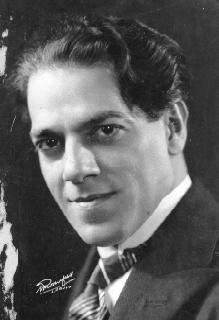
String Quartet No. 5 ("Quarteto popular no. 1") is the fifth of seventeen works in the genre by the Brazilian composer Heitor Villa-Lobos, written in 1931. A performance lasts approximately 17 minutes.

String Quartet No. 5 ("Quarteto popular no. 1") is the fifth of seventeen works in the genre by the Brazilian composer Heitor Villa-Lobos, written in 1931. A performance lasts approximately 17 minutes.
Villa-Lobos composed his Fifth Quartet in São Paulo in 1931. The manuscript bears a dedication to João Alberto Lins de Barros the federally appointed Governor (Interventor) of the State of São Paulo from 26 November 1930 to 25 July 1931, though his name does not appear in the published score. The circumstances of the quartet's first performance are not recorded. [1]
The Quarteto popular is the first of a pair of quartets written in the 1930s, and marks a return by Villa-Lobos to the string quartet after a hiatus of fourteen years. Its composition also coincides with the composer's return to Brazil after a lengthy period spent mainly in Paris, and its marked turn to nationalism is associated with the political programme of the Getúlio Vargas regime. [2] The subtitle, "Quarteto popular", likely refers to the use of actual popular Brazilian melodies. Villa-Lobos himself declared that this quartet is among his weaker compositions. [3]
This quartet, like all of Villa-Lobos's quartets except the first, consists of four movements:
The Fifth Quartet is unusual in Villa-Lobos's works in this genre for using genuine folk material, albeit in modified form. [4]
Over the course of the first movement the tempo changes many times, ranging from Lento to Presto. The long Lento section in b. 90 to 136 is characterised by lyrical melodic writing in the first violin accompanied by a complex rhythmic pattern in the other instruments. [5]
The second movement's predominantly fast tempo is also interrupted after eleven bars by a Lento section featuring double stops in all four instruments and sul ponticello tremolo effects in the two violins. After eight bars, the opening tempo is resumed for the remainder of the movement, save for a concluding Molto lento coda of five bars. [6]
The third movement inverts the relationship found in the first two movements by interrupting a predominantly slow tempo after only two bars with a fast and light-hearted section (Tempo giusto e ben ritmato) of sufficient length to make the opening material sound merely like a slow introduction. After twenty-three bars, however, a slow tempo (Adagio) is resumed, eventually giving way to the original Andantino. [7] The short opening Andantino motive, played in unison, is one that Villa-Lobos often uses to suggest Indian music. [8]
The finale, in contrast to the earlier movements, maintains a steady Allegro tempo throughout. [9] After a brief introduction in parallel fourths, the main theme from the first movement returns, at double its original tempo but in the same key. A series of children's themes taken from Villa-Lobos's collection, Guia prático, provides the substance for the rest of the movement. The central section is based on the song "O Bastão ou mia gato" (The Stick or a Cat's Meow), played in harmonics in all four instruments, after which the opening section, minus the introduction, is repeated to create an ABA ternary form. [8]
In chronological order, by date of recording.